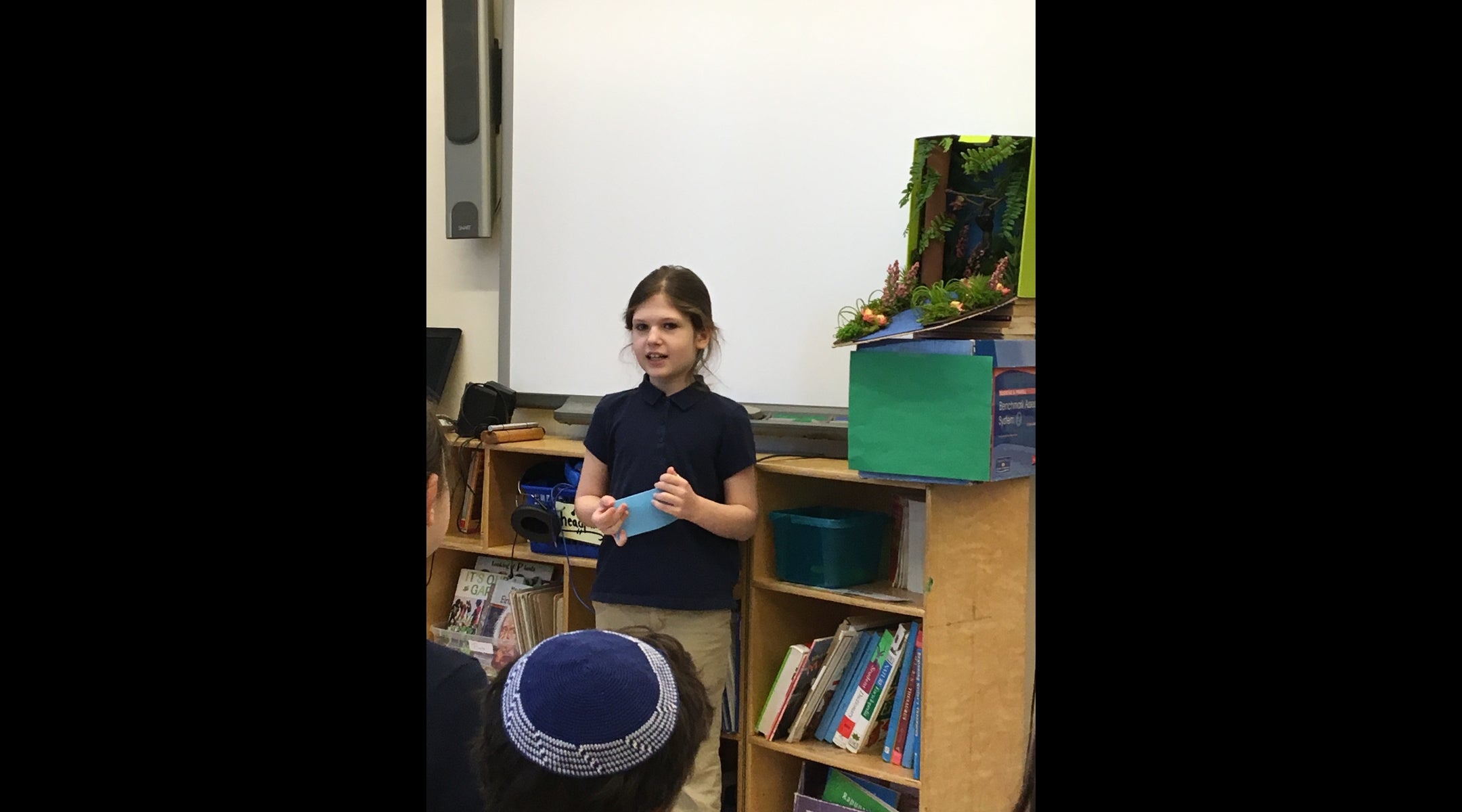This article was produced as part of the New York Jewish Week’s Teen Journalism Fellowship, a program that works with Jewish teens around New York City to report on issues that affect their lives.
From kindergarten through eighth grade, I walked 10 minutes down Columbus Avenue every day to 100th street and through the glass doors of my Jewish day school, where we would begin each day with prayer. By the time Schechter Manhattan, an Upper West Side school associated with the Conservative movement, shuttered its doors last year, I was already a sophomore at a public high school in Battery Park.
At Schechter, I was culturally enveloped by Jewishness. Each day we studied modern Hebrew and we learned about topics like the Hebrew Bible and Jewish history. Schechter gave me a strong and valuable bedrock of Jewish thought, practice, history, and culture. My friends who are attending Jewish high schools have a deeper familiarity with Jewish practice and theology, and will have greater literacy in our shared culture.
And yet, while I miss the security afforded by that environment, I’ve come to realize that I’m better off not learning in a Jewish-only setting.
At my heterogeneous public school, Stuyvesant High School, where I’ll begin my senior year on Thursday, I am able to learn from and engage with a population that is diverse and varied in experiences and opinions. Compared to my old school — which was, for the most part, upper middle class Ashkenazi Jews — my current school is 70% East and South Asian, 18% white, 12% Black, Latino, American Indian and mixed.
Interactions with my non-Jewish classmates, as well as with Jewish classmates who come from different communities, force me to examine my beliefs more than being in Jewish school would have. Thinking through my values in order to discuss them with my peers prompts me to appreciate Judaism more than I would’ve if I had continued to attend Jewish day school.
For example, when I was at a Jewish school, it wasn’t up to me whether I would learn the Mishna, or Jewish oral law — I was simply handed a tract and told to analyze it. As a young student, this was infuriating to me. I was of the opinion — shared by several of my classmates — that translating biblical Hebrew, or even speaking modern Hebrew, was a useless skill and therefore a waste of time. I longed to learn a more common language, like Spanish or French.
But even more than wanting more practical lessons, I wanted out of the Jewish day school bubble. I was eager to join a community where people’s personal experiences varied by miles, not inches.

The author giving a presentation in her my fourth-grade classroom at Jewish day school on March 23, 2018. (Courtesy)
Today, I consider myself lucky that I have peers who come from a variety of backgrounds and are able to push back on my personal views. I compare notes on Yom Kippur with Muslim classmates fasting for Ramadan; my Protestant and Eastern Orthodox friends bring me candy canes in December. Although I’ve had the occasional outlandish claim said to me — such as the debunked claim that the IDF is stealing organs from Palestinians for illegal transplants — and I’ve seen my fair share of idiotic Instagram stories, the interactions I’ve had with my peers regarding the Middle East have led me to thoughtfully examine and discuss the epistemology of my own beliefs.
Shortly after Israel’s war with Hamas in Gaza began in October 2023, some classmates started posting slogans on their Instagram stories along the lines of “Zionism is racism.” I took a step back and thought about it for myself. I came out the other side with my mind unchanged — I still don’t think Zionism is racist, but instead a valid political movement based in Jewish and Middle Eastern history, cultural identity and religious practice. But I now have a clearer sense of why I think this, as well as a strengthened conviction.
Despite my satisfaction with the multicultural community I’ve found in public high school, I do miss the religious and cultural immersion that is only possible in Jewish schools. When family members who grew up in very religious settings joke with each other, I never fully grasp the obscure Jewish laws they’re referring to, or the Yiddish punchlines to their jokes. It saddens me that I don’t have the knowledge necessary to engage with Judaism in that way, and I know that my choice of secular schooling has accentuated that feeling of displacement.
But I also understand that the onus is on me to continue my Jewish education. One day, I hope to continue learning Hebrew or study Jewish law. For now, however, I’m mostly in a secular world. While that means it’s harder to find time for my Jewishness, I also recognize that my religious identity endures, but in a different way: juxtaposed against all the contrasts at my school, I can now clearly see how important my Jewish identity is to me. When I see my Jewish friends there’s a familiarity; I love that there’s a shared culture among us that doesn’t have to be translated. I wouldn’t be as cognizant of the importance of Jewish community if I was in one all the time.
I recognize the paradox: If I had stayed in the Jewish school system I’m certain I wouldn’t have gained the appreciation for Hebrew or my Jewish heritage that I now have. Maybe I would have ended up reaching the same conclusions about my identity if I’d chosen a Jewish high school, but I needed to arrive at that place myself, within the context of the diversity around me.
The New York Jewish Week brings you the stories behind the headlines, keeping you connected to Jewish life in New York. Help sustain the reporting you trust by donating today.





